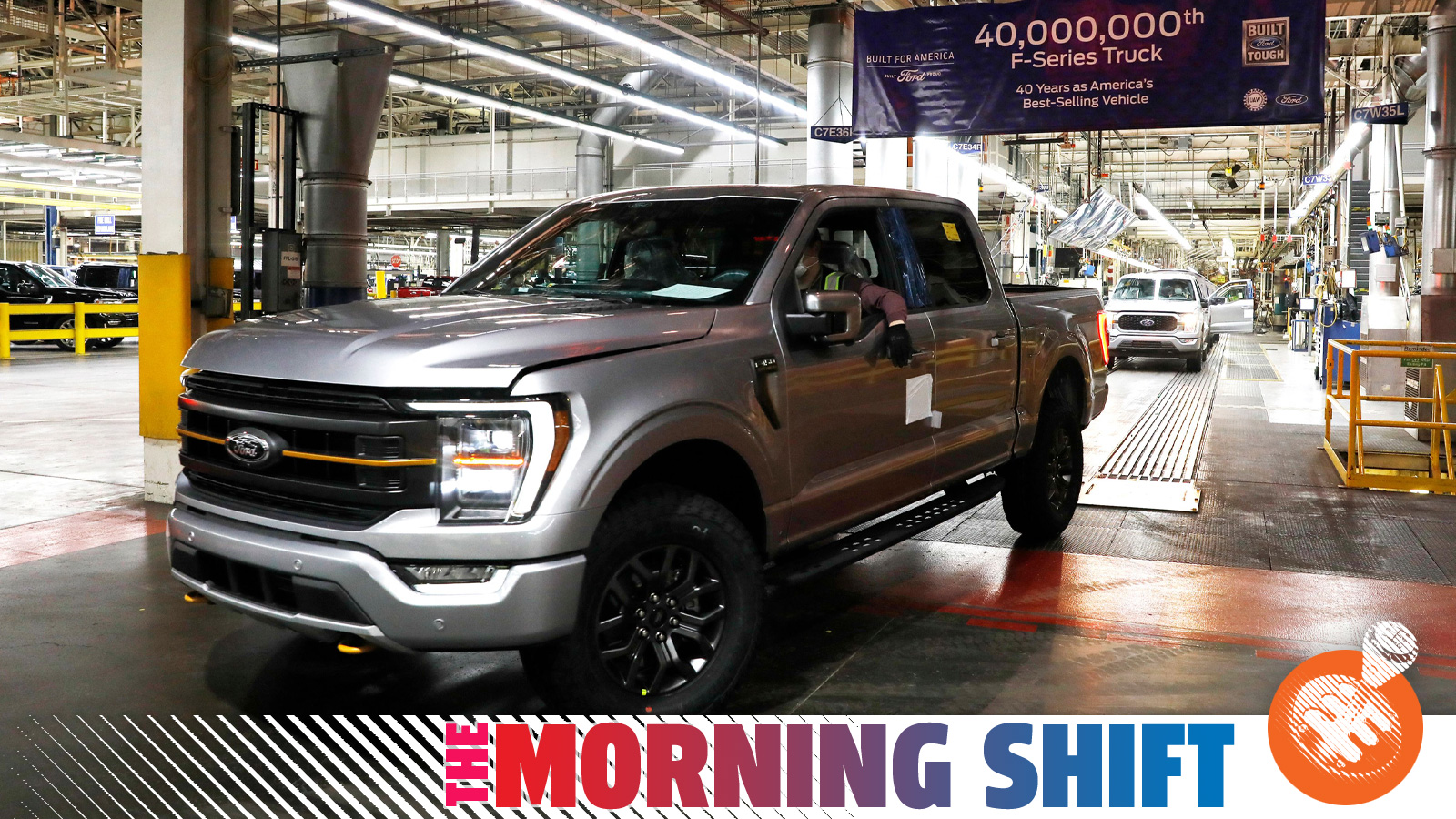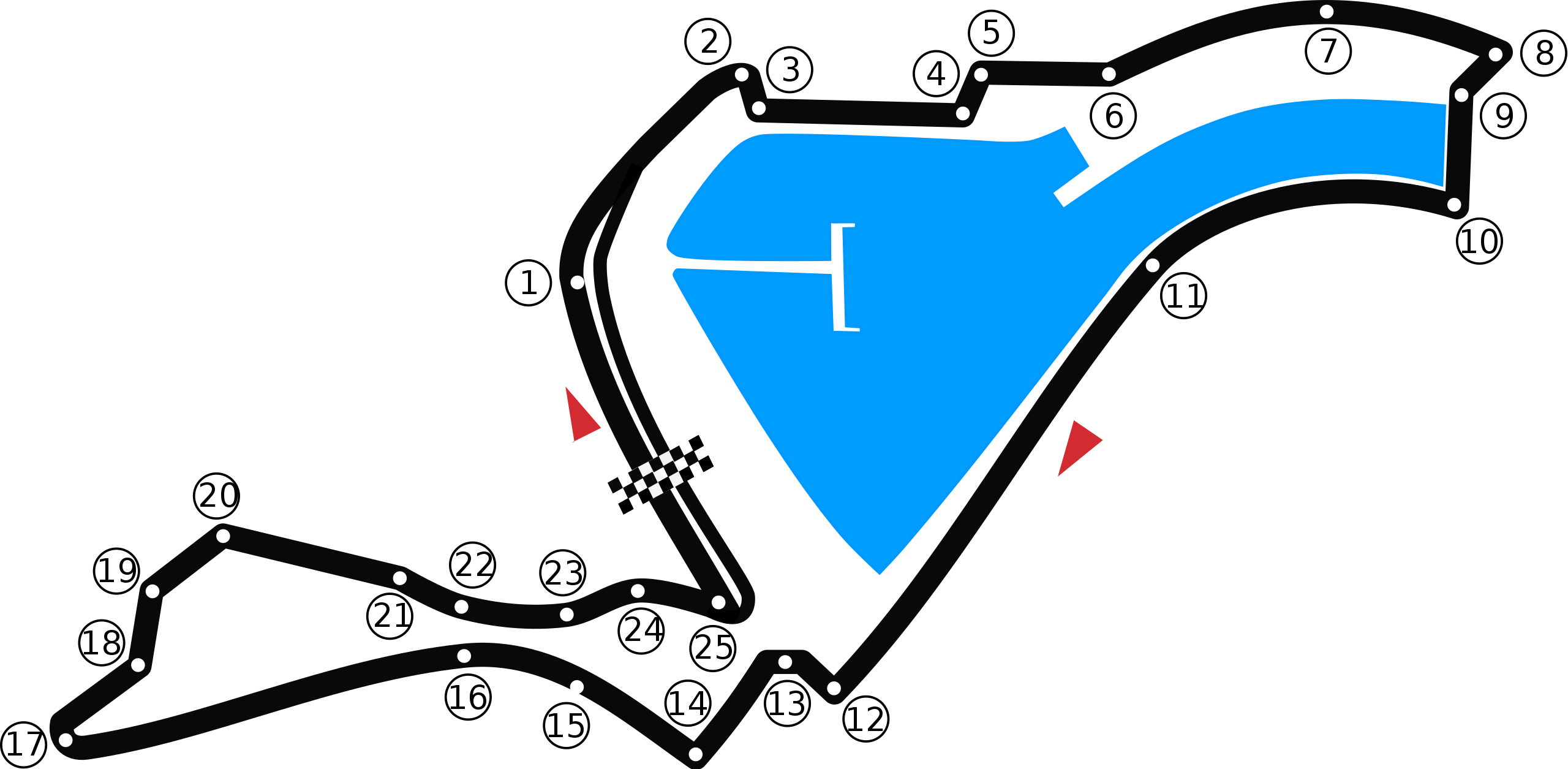Ford Says It Must Cut 3,000 Jobs To Build EVs And Stay Competitive
Most of the jobs lost are "white-collar" salaried and contract positions in North America and India.
Ford is cutting about 3,000 jobs after just pledging to create about 3,000 jobs to receive Michigan funding, German automakers are establishing supply chains in Canada for predictable reasons, and the Hino headache will not go away for Toyota. All that and more in The Morning Shift for Tuesday, August 23, 2022.
1st Gear: Incentives and Cuts
In a memo to staff on Monday, Ford CEO Jim Farley said the company needed to trim its workforce — totaling 3,000 salaried and contract jobs primarily in North America and India — because of a fundamental change in the types of vehicles it's building. From Reuters:
Ford Chief Executive Jim Farley has been saying for months that he believed the Dearborn, Mich. automaker had too many people, and that not enough of its workforce had the skills required as the auto industry shifts to electric vehicles and digital services.
"We are eliminating work, as well as reorganizing and simplifying functions throughout the business. You will hear more specifics from the leaders of your area of the business later this week," Farley and Ford Chairman Bill Ford wrote in a joint email.
Ford shares were down 4.8% in midday trading amid broader declines on Wall Street.
Like other established automakers, Ford has a workforce largely hired to support a traditional combustion technology product lineup. Going forward, Farley has mapped out a strategy for Ford to develop a broad lineup of electric vehicles. Like Tesla, Ford wants to generate more revenue through services that depend on digital software and connectivity.
This isn't a surprise; Farley has been forthright with the possibility of layoffs since the spring. However, in the intervening months, Ford was handed $100 million in taxpayer-funded incentives from Michigan contingent on it creating at least 3,030 jobs and investing $1 billion in the state before June 2024. 3,030 is technically more than 3,000, and the automaker admits a "significant portion" of what's lost in the U.S. will be in Michigan. Nevertheless, Ford brass has argued that the rebalancing was necessary. From the Detroit Free Press:
The language of the incentive deal clearly notes that those new jobs must be in addition to the existing pool of hourly workers. But it makes no mention of what could happen if Ford cuts salaried positions, paving the way to Ford axing potentially thousands of white-collar Michigan workers and still possibly cashing in on a giant public incentive.
On Monday, [Ford spokesman Mark] Truby said the 3,000 layoffs announced this week would not have an impact on the company's commitment to the project tied to the tax incentives."
So net-net we're adding more jobs in Michigan," Truby said. "It's a rebalancing because those jobs that we talked about adding were hourly employees. The jobs we're talking about today are white-collar. On an absolute basis, we're still adding employment in Michigan if you look at both commitments."
Ford has not said whether additional cuts could be coming, but when asked, Truby said, "This is all we have to announce. We're going to continue to manage the business to deliver on our plan and have vibrant future."
A deal has terms, and it has spirit. As a general rule, it's foolish to trust any company to honor the latter.
2nd Gear: Canada Is Key
Volkswagen and Mercedes-Benz have inked deals in the Great White North to source necessary raw materials for EVs, including nickel, lithium and cobalt, according to Bloomberg by way of Automotive News:
The memorandums of understanding will be signed Tuesday in Toronto, with German Chancellor Olaf Scholz and Canadian Prime Minister Justin Trudeau in attendance, said the people, who asked not to be identified discussing confidential information.
Germany and Canada plan to work together in "areas such as critical raw materials," Scholz said during a news conference with Trudeau on Monday in Montreal.
"I am very happy that among the many, many declarations which are being signed during our visit, there are also those planned by Volkswagen and Mercedes, for example, in which a closer cooperation in this area will be sealed," Scholz said.
If you think this has anything to do with the fact that automakers will need to establish North American or fair-trade origin of many components to offer the $7,500 tax credit to consumers going forward, look at you being right!
"I am very happy that among the many, many declarations which are being signed during our visit, there are also those planned by Volkswagen and Mercedes, for example, in which a closer cooperation in this area will be sealed," Scholz said.
VW's agreement is designed to shorten supply chains for its facilities in the U.S. and avoid difficulties linked to tariffs and tax regulations, said one of the people. The move has partly been prompted by new rules that U.S. President Joe Biden signed into law last week, a source said.
A VW spokesperson said the automaker and its dedicated unit for its battery business, called PowerCo, are working on ramping up their battery activities, "especially reliable and sustainable supply chains."
"This holds true for the very promising North American market as well," the spokesperson said by email. A spokesperson for Mercedes declined to comment.
Expect lots more news of this nature in the coming months.
3rd Gear: France Will Give You $4K for This One Simple Trick
All you have to do is be a French citizen (where are you all going?), live in an urban zone and trade your car for an e-bike. From Electrek:
As reported by The Times, the full €4,000 incentive is awarded to those in lower income brackets that live in low-emission urban zones. Wealthier two-wheel converts will receive a reduced incentive commensurate with their income level. For those looking to buy a new electric bike but not ready to give up their polluting car, a subsidy of up to €400 is available.
Some cities have even more generous electric bicycle subsidies. The Socialist-Green council of Paris offers up to €500 toward the purchase of an e-bike or a folding pedal bike.
This is part of an ongoing campaign in France to drive people away from cars and toward public transportation, cycling, and walking. We've seen it play out in advertising, where automakers were already incensed by the suggestion that not everyone should drive or own cars. I'm sure they'll love this.
4th Gear: Toyota Can’t Shield Itself From Hino
Hino, Toyota's commercial truck unit, has been cheating emissions regulations for a very, very long time — almost 20 years. We covered yesterday how the truck maker has halted shipments of some models, but the date falsification appeared to start two years after Toyota acquired Hino in 2001.
There are supposedly limits as to what degree of control or oversight Toyota could exercise on Hino, but the link between the two companies at the highest levels is pretty apparent. From Reuters:
"Toyota's responsibility is serious," said Seiji Sugiura, senior analyst at Tokai Tokyo Research Institute, adding that Toyota had responsibility for the corporate culture at Hino.
Hino became Toyota's subsidiary at 2001 and nearly all presidents since then have been those who previously worked for Toyota.
Although Toyota has done necessary tasks as a parent company in terms of approving important matters and giving advice on governance, it could not directly intervene in Hino's management, said Toyota's Chief Communications Officer Jun Nagata.
"I do not believe that we were able to intervene," Nagata said, adding it would be up to Hino to restructure the company and protect its brand.
The "total number of vehicles involved in data fraud" currently stands at 640,000, according to Nikkei Asia.
5th Gear: Stellantis, Renault Expect to Bounce Back
Back to France, where Stellantis — owners of Peugeot and Citroen, among many other brands — and Renault are restarting production after an annual summer break. The difference between this year and the same time in 2021 is that French automakers don't expect as many manufacturing snags due to the supply chain, which is a good sign. From Reuters:
Production at Renault and Stellantis car plants in France – which had closed for the annual summer break – will resume in a more normal manner than at the end of August 2021, when chip shortages led to a series of production halts, spokespersons for both companies said.
"We anticipate production to resume normally," a Renault spokeswoman said.
"Our French production sites have resumed business well after the summer break, still amid a semiconductor shortage that requires daily monitoring by our teams," a Stellantis spokeswoman said.
Hopefully, for Stellantis, this is an indication it will finish the year strong after already surpassing projections for the first half.
Reverse: A Momentous End to the Most Boring Race
It was on this day in 2009 that Rubens Barrichello, then driving for the 100-percent championship win-rate Brawn GP, claimed the 2009 European Grand Prix at the short-lived Valencia street circuit. It was his first win in five years — since his Ferrari days — and would be his second-to-last in Formula 1.
If not for that, this Grand Prix would have been entirely forgettable, as Wikipedia reports not a single overtake was recorded. Here's what Barrichello had to say after the race:
It has been fantastic. It has been a weekend that I will never forget especially because after five years you don't forget how to do it, but it is tough. In the middle of the race they were telling me push, push, push and although you are pushing like hell there are some things that go through your mind. You know that you cannot commit any mistakes and you want to do it for yourself, you want to do it for your country and you want to do it for your family. There was a lot going through my mind but the car has been perfect and I want to thank the team for that because it wasn't just me. The car was really brilliant.
Neutral: Remember Valencia?
I recall this race being such a big deal when it was first announced. Today, it feels like half the F1 calendar is composed of street circuits, and lots of them are bad. But the design seemed promising, and there was a part of me — the wide-eyed, teen newcomer to the sport — that thought this would be the next Monaco. Now it's mainly remembered for being the place where Mark Webber took flight for the second time. All told, F1 only raced here for five years.

